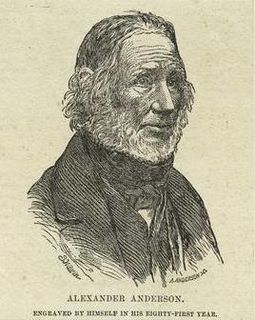A Quote by Joseph Smith, Jr.
Come, all ye lovers of liberty, break the oppressor's rod, loose the iron grasp of mobocracy, and bring to condign punishment all those who trample under foot the glorious Constitution and the people's rights.
Related Quotes
Ask of me, and I shall give thee the heathen for thine inheritance, and for thy possession, the ends of the earth. Thou shalt break them with a rod of iron. Thou shalt dash them in pieces, like a potters vessel. Be wise now therefore, ye kings. Be admonished, ye judges of the earth. Serve the Lord with fear, and rejoice with trembling. Kiss the son lest he be angry, and ye perish in the way, though his wrath be kindled but a little.
I am the greatest advocate of the Constitution....The only fault I find with the Constitution is, it is not broad enough to cover the whole ground. Although it provides that all men shall enjoy religious freedom, yet it does not provide the manner by which that freedom can be preserved, nor for the punishment of Government officers who refuse to protect the people in their religious rights, punish those mobs, states, or communities who interfere with the rights of the people on account of their religion. Its sentiments are good, but it provides no means of enforcing them.
Be ye a refuge to the fearful; bring ye rest and peace to the disturbed; make ye a provision for the destitute; be a treasury of riches for the poor; be a healing medicine for those who suffer pain; be ye doctor and nurse to the ailing; promote ye friendship, and honour, and conciliation, and devotion to God, in this world of non-existence.
Numbered among our population are some 12,000,000 colored people. Under our Constitution their rights are just as sacred as those of any other citizen. It is both a public and a private duty to protect those rights. The Congress ought to exercise all its powers of prevention and punishment against the hideous crime of lynching, of which the negroes are by no means the sole sufferers, but for which they furnish a majority of the victims.
The Eighth Amendment to the Constitution protects citizens against cruel and unusual punishment. And there is a growing body of legal precedent that shows that transgender people who are incarcerated should be provided with these medically necessary procedures. In cases where they're not, it is considered a violation of those rights.
If to break loose from the bounds of reason, and to want that restraint of examination and judgment which keeps us from choosing or doing the worst, be liberty, true liberty, madmen and fools are the only freemen: but yet, I think, nobody would choose to be mad for the sake of such liberty, but he that is mad already.
When a judge goes beyond [his proper function] and reads entirely new values into the Constitution, values the framers and ratifiers did not put there, he deprives the people of their liberty. That liberty, which the Constitution clearly envisions, is the liberty of the people to set their own social agenda through the process of democracy.
I typically don't use the distinction 'positive' and 'negative' liberty, because negative sounds bad and positive sounds good, and I don't think that the terminology ought to prejudice us one way or the other. So I think the more descriptive term is 'liberty rights' versus 'welfare rights'. So, liberty rights are freedom-of-action type rights, and welfare rights are rights-to-stuff, of various kinds...And, property rights are not rights-to-stuff. I think that's one of the key misunderstandings about property. Property rights are the rights to liberty within your jurisdiction.
From Lehi's vision we learn that we must take hold of this safety railing-this iron rod, found alongside our individual straight and narrow path-and hold tight until we reach our ultimate goal of eternal life with our Heavenly Father. Nephi promises that those who hold fast to the iron rod"would never perish; neither could the temptations and the fiery darts of the adversary overpower them unto blindness, to lead them away to destruction"





































